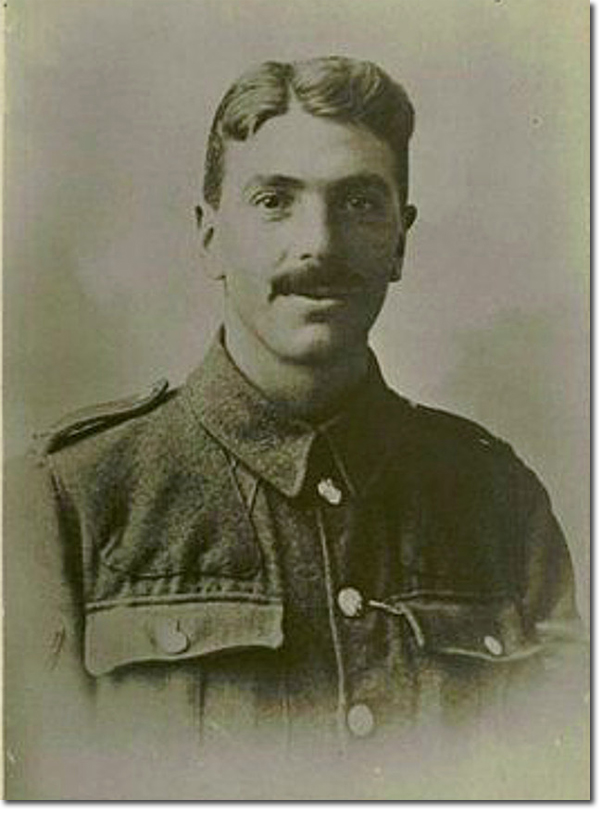|
|


|
|
Sergeant David Jones was serving in the 12th Battalion King’s Liverpool Regiment at Guillemont in France when, on 3 Sep 1916, his platoon was ordered to advance to a forward position. They came under heavy fire which killed the officer and caused heavy casualties. Jones took charge and led the remains of the platoon to the position which they occupied for two day and nights without food or water. On the second day they came under attack three times but drove them back. It was due to Sergeant Jones’s resource and example that his men were able to endure the ordeal and fight off the attacks.
David Jones was born in Liverpool on 10 January 1892, the son of a dock-worker, and the third of eight children. He trained as a motor mechanic at Joseph Blake Motor Company. He joined the 9th Territorial Battalion of the King’s Regiment in June 1909 and enlisted in the 12th Battalion on 29 Aug 1914 when war was declared. He was married in May 1915, to Elizabeth Doyle, but had no children. On 24 July 1915 the battalion went to France. After his brave deed he was recommended for the VC but he didn’t live to receive it. He was killed at Gueudecourt on 7 October 1916 during the battle of Transloy Ridges. His body was buried near his place of death but exhumed and reinterred at Bancourt British Cemetery near Bapaume. His widow, Elizabeth received the medal from King George V at Buckingham Palace on 31 Mar 1917. She was asked to wear the medal but when soldiers saluted her she was embarrassed. She was unwilling to give the medal to the amalgamated King’s Liverpool and Manchester Regiment after 1958 and instead gave it to the Joseph Blake Motor Company where David had worked before WW1. But the medal ended up at the Museum of Liverpool where it can be seen today. |
Armed Forces | Art and Culture | Articles | Biographies | Colonies | Discussion | Glossary | Home | Library | Links | Map Room | Sources and Media | Science and Technology | Search | Student Zone | Timelines | TV & Film | Wargames